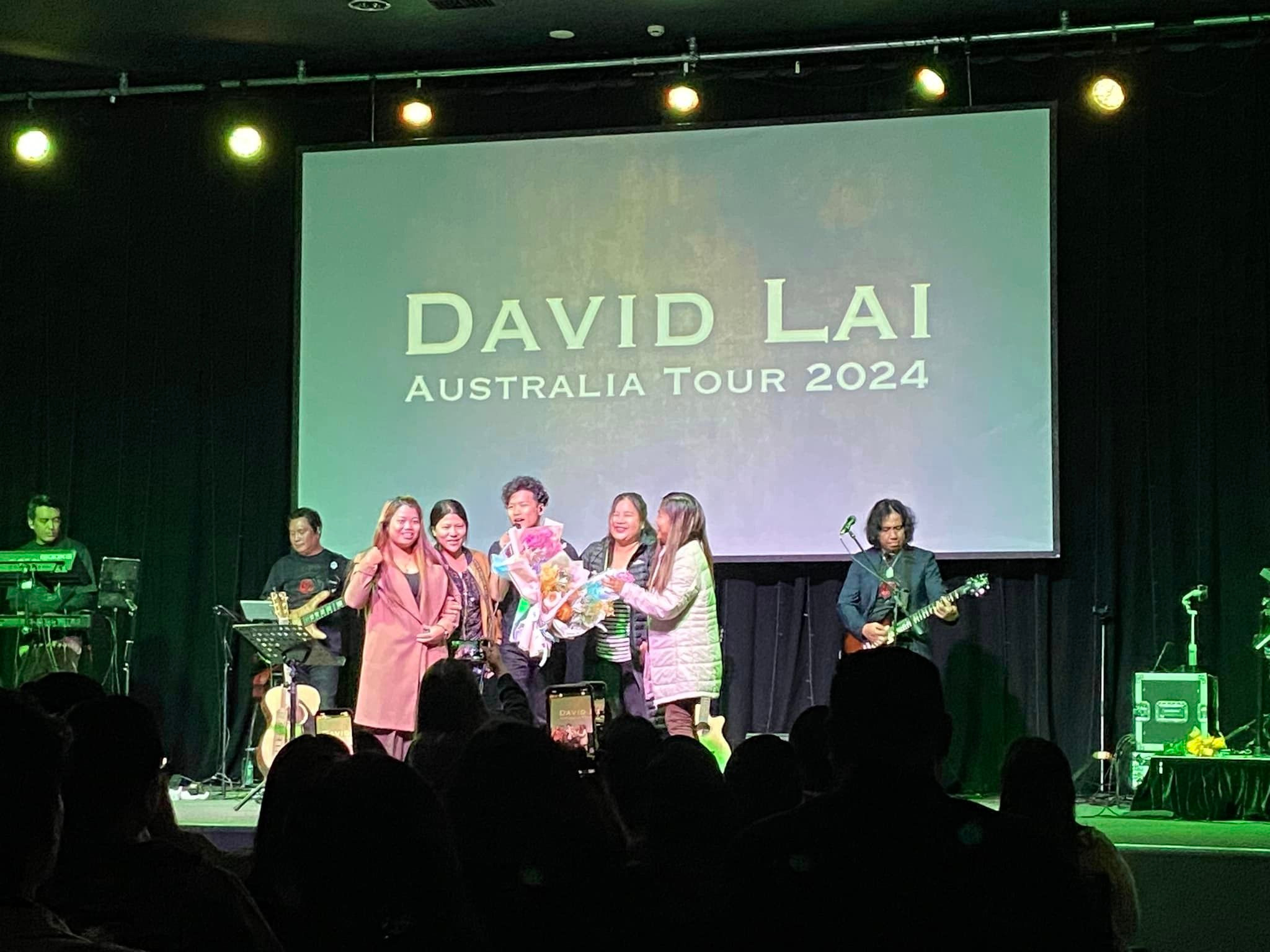
INTERVIEW - "We cannot make peace with the military regime": David Lai
Q: How do you feel after this concert?
A: Well, I felt awkwardly at the beginning of the show but
felt enjoyable when the show drew to an end. I am not quite sure about
the reason, maybe because of the audience's support. But at the start, I
felt a bit sorry and tired.
Q:It has been two shows, how do you find the difference between Sydney and Melbourne?
A:
It is different from place to place. Here in Melbourne, the Chin
population outnumbers Sydney. But in Sydney, there were more
Burmese-speaking populations than Chin and Karen. There were some
Kachin. I think we succeeded in the objective of this music concert. The
number of attendees is not as important as the objective of this
charity event, which is to unite all ethnic people in diversity and
raise funding together to support people in Myanmar.
Q: I
understood that you have arrived in Australia (from India) for a
month. Are there any other activities you are planning other than the
charity music tour?
A: It is only for music tours. I have to go back to India after this.
Q:
I have noticed that the cover song of Chin singers, 'We are the
world', attracts more than five million views on YouTube. Can you tell
me the idea behind it?
A: The main organizers of that
song were the U.S.-based 'Chin Tube' group. They organized the Chin
singers in Aizawl (the capital of Mizoram) to join in the group song.
The objective was to make people in the outside world aware and hear
about our situations. Chin singers from different parts of the world
came together to make this song, including Chin musicians from
Australia, New Zealand, Europe, the U.S., Mizoram (a state of India),
India, and even from Myanmar.
Q: Where were you when this 'Spring Revolution' began?
A: I was in Yangon (the capital of Myanmar). I think I was
there for about two months. I was along with my friends in street
protests for one month. After that, my uncle warned me to go somewhere
for my safety. At first, I didn't want to hide because I thought it was
unnecessary. In other words, I thought the violence (against peaceful
protesters) would not happen in our capital city. I was wrong. Such kind
of violence was a small thing for the military. They did it in the
past, they are familiar with it. But at my age and with my experiences, I
hadn't seen it yet. When I saw it with my own eyes, it was
unbelievable.
Q: And then where did you go? To Chin state?
A: I
was born and raised in Yangon and started my music career there. When
he time came to hide, I went to India by crossing from Rakhine state.
Q: So now in India?
A: Yes, in Aizawl.
Q: Did you stay in a refugee camp there? Or have you been there?
A: I did
not stay in a refugee camp. But I have been there often, along with the
'Guys from Chin' music group, or individually, or with other
organizations, for donation or moral support activities such as music
events.
Q: Do you have any experience to remember meeting with refugees?
A: I
see they have lost basic human rights even though they are temporarily
safe in a place of others. When they are sheltering not in their own
land, not in our country, there are issues on health, education, and
safety support. These are the consequences of the military coup and the
suffering of our Chin people after the coup.
Q: And what about yourself, any impact you have in your own life?
A: Absolutely,
there have been many. It has changed a lot in music creation. Before
the coup, I wanted to walk my own way of life in personal freedom. But
in these circumstances, I feel like I have no future. I am not talking
about myself, but for all young people. They do not have a future. We
cannot think of our own personal development. In battlefields, our
friends and young brothers have no chance to feel the softness of
artistic things. No one to blame for that.
Q: As you
know, Chin state or Myanmar as a whole is diverse in ethnicity. What is
your thought on what music can do with these diverse societies?
A: One
of my friends told me that music has soft power. There were some points
in history where music brought unity. As this is a revolution, we
cannot make peace with the military regime. At the same time, unity
among all ethnicities in our country and within our Chin community is
very important.
A: Are you satisfied with what you are doing now?
Q: Absolutely
not. I will never be satisfied with what I can do to help people.
Because at the beginning of the revolution, we organized many
fundraising activities with friends. I could collect a large amount of
money at that time, but now the funding has declined. This trend causes
suffering for the refugees and IDPs.
Post a comment